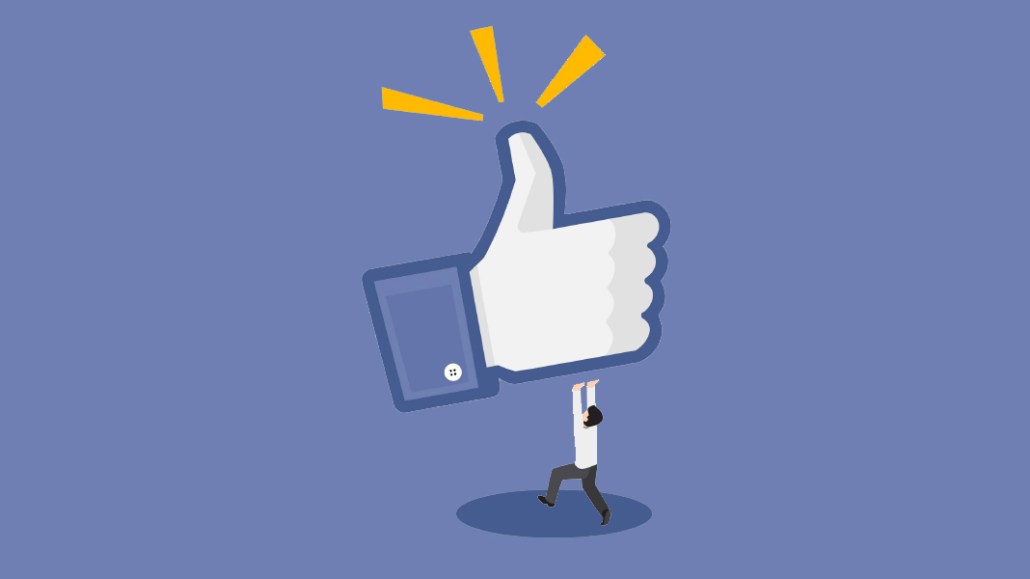Secure your place at the Digiday Media Buying Summit in Nashville, March 2-4
‘We knew it would impact our business negatively’: How joining the Facebook boycott affected one small advertiser

With the Facebook boycott coming to a close for some advertisers, many of the smaller brands that initially joined the boycott are now returning to the platform. As previously reported by Digiday, doing so isn’t necessarily a signal that they are happy with Facebook’s response to the boycott but rather a recognition that they are highly dependent on direct response campaigns on the platform to help drive revenue.
JibJab, a digital greetings card company that specializes in satirical content, is among the smaller advertisers returning. During the month of July, the company not only pulled its advertising from Facebook and Instagram but also stopped posting organic content to those channels.
Now, it is starting to return to the platform as staying off the Facebook advertising ecosystem permanently is untenable, according to Paul Hanges, CEO of JibJab, who added that like many smaller direct-to-consumer brands Facebook is a needed acquisition channel for the company. Facebook now has roughly eight million advertisers, many of which are small businesses that make up the bulk of the advertising spending and that use the platform as a primary customer acquisition channel.
“We know that a lot of DTC brands didn’t feel like they could participate in July because so much of their new business and their new revenue relies so heavily on Facebook advertising,” said Hanges. “That’s why it felt even more important to participate during the month of July, even though we knew it would impact our business negatively for the month.”
Typically, Facebook campaigns drive 35 to 40% of total new subscriber volume for the company, said Hanges. At the end of July, new subscriber volume was down 25% compared to where it was trending at the end of June. JibJab has between 1.3 to 1.5 million subscribers and spends between $4 to $6 million on Facebook ads annually, said Hanges, who added that typical new subscriber volume varies by the time of year.
While JibJab “didn’t see as big of an impact as we might’ve expected,” said Hanges, returning to the platform now is necessary to continue to grow the business.
Dealing with the losses from a month off Facebook was “never a realistic option for many brands I work with,” said Jeremy Sonne, managing director at Moonshine Marketing, an agency that works with many DTC brands. “Most brands, especially DTC brands that I work with, more than half of their revenue comes from Facebook and Instagram. In a way, it’s a luxury that larger brands have that its even something they could consider.”
JibJab is still figuring out what returning to Facebook looks like and if it will continue to advertise at similar levels to that of 2019 or earlier in 2020. “We’re starting to slowly dip our feet slowly back,” said Hanges. “One of our priorities is diversifying our acquisition set and finding other channels to reduce the reliance of our brand on Facebook advertising.”
JibJab is testing other channels like Pinterest and Twitter to help broaden its advertising channels as having roughly 40% of its new subscriber volume come from one channel is “risky.” It’s too early to tell what the results from those platforms are and whether or not the company will divert a greater percentage of ad dollars to those other channels going forward.
As for whether or not JibJab is satisfied with the results of the boycott, Hanges said it’s a “difficult question to answer” as a smaller advertiser. “I’m not in those rooms. We understand our place in the broader ecosystem and know that we are a smaller advertiser who is not having direct conversations with leadership on different sides, so we don’t know all the nuances.”
More in Marketing

Future of Marketing Briefing: AI’s branding problem is why marketers keep it off the label
The reputational downside is clearer than the branding upside, which makes discretion the safer strategy.

While holdcos build ‘death stars of content,’ indie creative agencies take alternative routes
Indie agencies and the holding company sector were once bound together. The Super Bowl and WPP’s latest remodeling plans show they’re heading in different directions.

How Boll & Branch leverages AI for operational and creative tasks
Boll & Branch first and foremost uses AI to manage workflows across teams.








